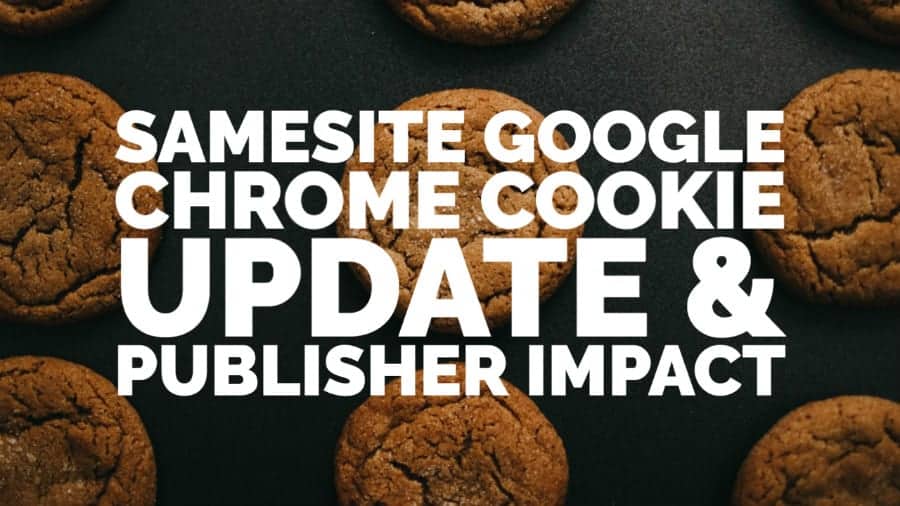
Recently, on February the 4th 2020, Google released its Chrome v80 update and made changes to its SameSite cookies with regards to how they will be treated in the browser. In this post, we’ll take a closer look at what cookies are, the SameSite attribution and the impact of this change for publishers.
With the latest Chrome v80 update, they are changing the way cookies are being handled in the browser. Cookies are being restricted to first-party access by default. All cookies need to be marked explicitly for access in a third-party context.
Cookies without the SameSite attribute will be treated as though they have the attribute SameSite=Lax, which will restrict them to first-party cookies only. If you need third party cookies, the SameSite attribute needs to be SameSite=None and secure. In other words, third-party cookies will only be sent over secure HTTPS connections.
Cookies are text data a website sends in response to a user visit and is stored in the browser. A browser would save these cookies or text data and send them back to the website if the request is eligible. When the site in the browser matches that of the request, it’s a SameSite request or first-party cookie. Alternatively, when the site in the browser does not match that of the request, it’s a cross-site or third-party cookie.
Third-party cookies often get used when requesting resources from a different site. This can be something like a pixel, font, script, or iframe embedded content. An example would be embedding a YouTube video on a web page and then having functionality such as liking the video or subscribing to the channel. All of this would be thanks to third-party cookies.
The result of this change will vary depending on each publisher’s situation. If you are responsible for the cookies on the site, then you will need to update them with the correct SameSite attributions, as previously mentioned.
If it’s a third-party cookie situation, then it would be best to reach out to them and make sure they are changing the cookie attributions correctly so that those third-party cookies are performing the actions needed.
You can check the status of SameSite cookies for a website right-clicking > Inspect > Console.
Understanding cookies can be a little tricky at first. Our blog post and resources shared gives you a good understanding of the SameSite attribution issue. For publishers with complicated setups or who still have trouble understanding this update, MonetizeMore can help. We have a team of skilled developers and ad optimization specialists who can assist you in adapting with this update and ensure that it doesn’t negatively impact your ad revenue. Get the help you need by signing up to MonetizeMore today!
10X your ad revenue with our award-winning solutions.